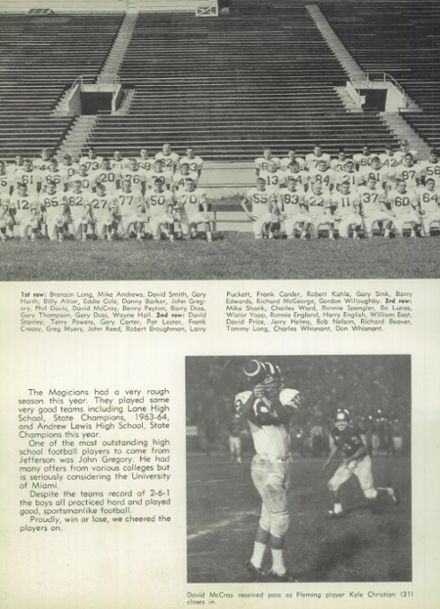Justification by Faith
Charles e Whisnant, Pastor/Teacher 01 31 2016
"Therefore, being justified by faith, we have peace with God, through our Lord Jesus Christ."—Romans 5:1.
- The first discovery that a man is led by the Spirit of God to make before he is justified is, that it is important to be justified in the sight of God.
- The next thing is this. A man, when the Spirit of God is bringing him to Christ, discovers that his past life has been marred badly, by serious offences against the law of God. Before the Spirit of God comes into our soul, Exodus 20:14; Matthew 5;28; Genesis 6:5; Luke 19:10
- Then there comes another discovery, namely, that consequently it is utterly impossible for us to hope that we ever can be just before God, on the footing of our own doing. Galatians 3:10;
- A man, having found out all this, suddenly discovers that, inasmuch as he is not just before God, and cannot be, he is at the present moment under condemnation.
- The GospeI I may give you in a few sentences, namely, these: that, inasmuch as through man's sin, the way of obedience is for ever closed, so that we—none of us—can ever pass by it to a true righteousness, God has now determined to deal with men in a way of mercy, to forgive them all their offences, to bestow upon them his love, to receive them graciously, and to love them freely.
- I trust we have learned that; that there is a plan of salvation by grace, and by grace alone; and it is a great thing to know that where grace is, there are no works.
- And this is God's plan, namely, that, inasmuch as we cannot be saed by our own obedience, we should be saved by Christ's obedience. Hebrews 10:7; John 14:31; John 12:49; Matthew 21:4;
Jesus, the Son of God, has appeared in the flesh, has lived a life of obedience to God's law, and in consequence of that obedience, being found in fashion as a man, he humbled himself and became obedient unto death, even the death of the cross,
and our Saviour's life and death make up a complete keeping and honoring of that law which we have broken and dishonored,
and God's plan is this: "I cannot bless you for your own sakes, but I will bless you for his sake; and now, looking at you through him, I can bless you though you deserve it not; I can pass by your undeserving;
I can blot out your sins like a cloud, and cast your iniquities into the depths of the sea through what he has done; you have no merits, but he has boundless merits; you are full of sin and must be punished, but he has been punished instead of you,
and now I can deal with you." This is the language of God, put into human words,I can deal with you upon terms of mercy through the merits of my dear Son."
This is the way in which the gospel comes to you, then. If you believe in Jesus, that is to say, if you trust him, all the merits of Jesus are your merits, are imputed to you: all the sufferings of Jesus are your sufferings.
Everyone of his merits is imputed to you. You stand before God as if you were Christ, because Christ stood before God as if he were you—he in your stead, you in his stead.
- Substitution! that is the word! Christ the Substitute for sinners: Christ standing for men, and bearing the thunderbolts of the divine opposition to all sin, he "being made sin for us who knew no sin." Man standing in Christ's place, and receiving the sunlight of divine favour, instead of Christ.
- Grace alone, Jesus alone, Faith alone.
- And this, I say, is through trusting, or believing. God's way of your getting connection with Christ is through your reliance upon him. "Therefore, being justified"—how? Not by works; that is not the link, but—"being justified by faith, we have peace with God through our Lord Jesus Christ." Christ offers to God the substitution: through faith we accept it: and from that moment God accepts us.
Jesus learned obedience experientially so we would have an "older brother" (Jesus is called the "firstborn among many brethren"), a high priest who can fully be sympathetic and empathetic with our situation. "For we do not have a high priest who cannot sympathize with our weaknesses, but One who has been tempted in all things as we are, yet without sin" (Hebrews 4:15).
When we come to Christ for help, we know that He will be sympathetic to our needs. "Let us therefore draw near with confidence to the throne of grace, that we may receive mercy and may find grace to help in time of need" (Hebrews 4:16).
Christ’s Complete Obedience Climaxed in His Death
- Going to the cross showed obedience. "And being found in appearance as a man, He humbled Himself by becoming obedient to the point of death, even death on a cross" (Philippians 2:8).
Christ’s Obedience Brings Eternal Benefits
His prayer to the Father and the Father’s response clearly show that Christ’s own death was the only way to save lost men and women. He said, "Father, if thou art willing, remove this cup from me; yet not my will, but thine be done" (Luke 22:42).
Christ’s Obedience Sets the Goal for Us
In the Disciples’ Prayer (Matthew 6:9–13), Jesus tells us to desire to do the Father’s will. "Pray, then, in this way: ‘Our Father, who art in heaven, . . . thy will be done" (Matthew 6:9–10 %}). It is not enough just to recognize the authority of Scripture as the voice of God. God wants us to honor that authority by our own obedience. In fact, Jesus makes obedience to the Father a condition of our relationship with Him: "For whoever does the will of My Father who is in heaven, he is My brother and sister and mother" (Matthew 12:50
).
So my Lord Jesus Christ illustrates by His own life and walk the path I am to choose. My life is to be completely in line with the Word of God and thus the will of God. If even the stars and elements that He created obey His voice, should not I obey Him as well?
So my Lord Jesus Christ illustrates by His own life and walk the path I am to choose. My life is to be completely in line with the Word of God and thus the will of God. If even the stars and elements that He created obey His voice, should not I obey Him as well?

















